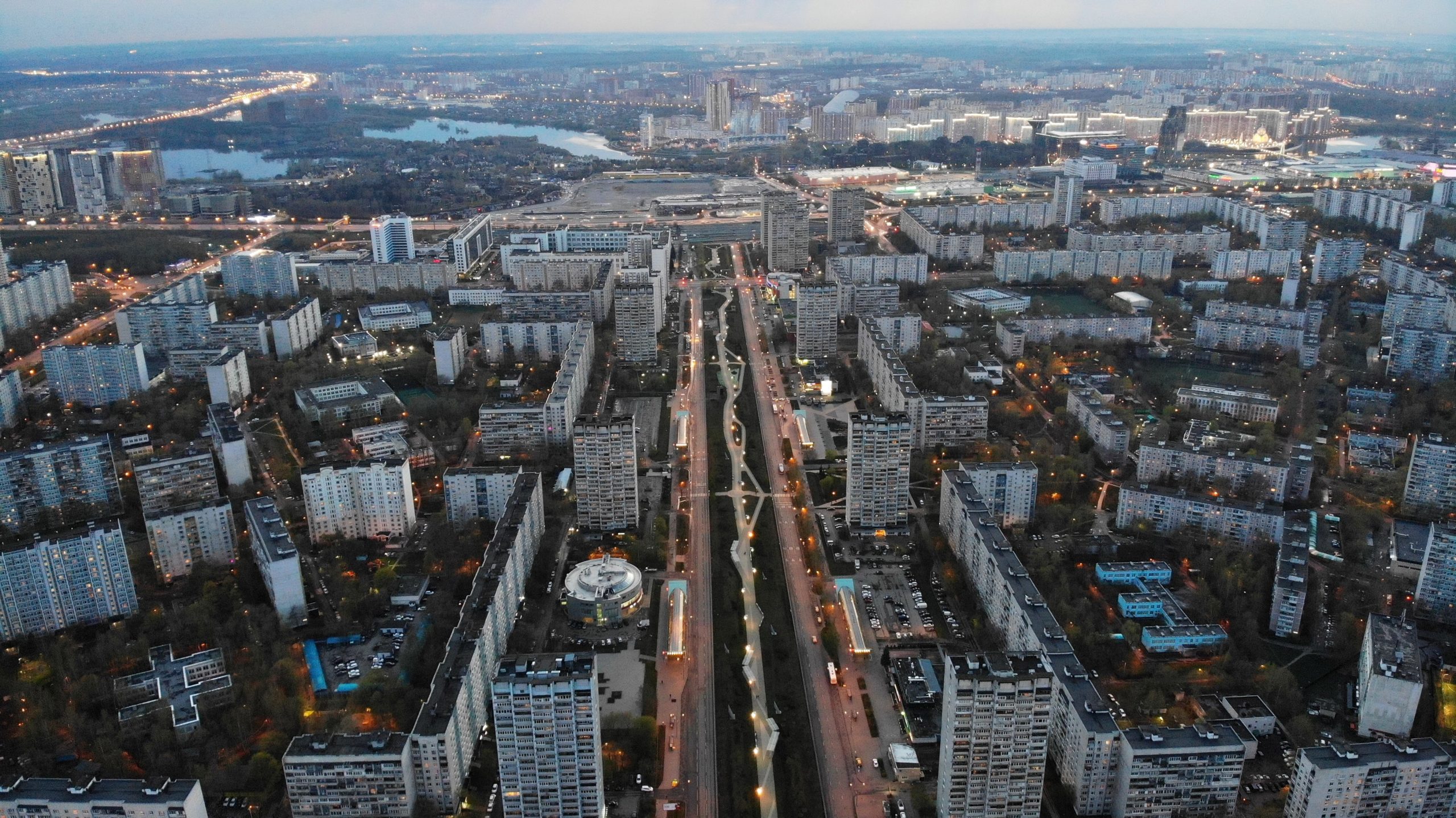This article is part of the Crunchbase Community Contributor Series. The author is an expert in their field and a Crunchbase user. We are honored to feature and promote their contribution on the Crunchbase blog.
Please note that the author is not employed by Crunchbase and the opinions expressed in this article do not necessarily reflect official views or opinions of Crunchbase, Inc.
Women in Russian Venture Capital 2021, initiated by Zerno Ventures, is the first survey and report in Russia that focuses on the role of women in the venture capital ecosystem.
Zerno Ventures is the first VC impact fund in Russia with a gender lens. The goal of the fund is to form a venture portfolio with at least 50 percent female-founded startups. The authors of the survey conducted polls and in-depth interviews with female and male founders and CEOs of Russian startups, as well as turning to open sources on venture capital financing in Russia and the world (Dsight, Crunchbase, and Pitchbook). The scope of the report includes:
- 5,404 Russian startups;
- 934 Russian female-founded startups;
- 1,454 venture deals with 1,203 Russian startups; and
- 150 questionnaires from respondents (founders, startup CEOs and investors).
The issue of gender diversity in the venture capital industry has been actively studied and discussed all over the world. For the Women in Russian Venture Capital 2021 report, the authors were particularly curious to understand the gender diversity of Russian founders. One of the main conclusions of the study is that the number of woman-founded startups in the Russian Federation is comparable to that of the rest of the world, but they attract less investment, even though they demonstrate resistance to crisis and potential for growth.
Gender roles in Russian society and economy
There are 78.8 million women in Russia, comprising 54 percent of the total population. Women are less included in the economy than men are, with only 60 percent of women aged 15 to 72 employed, compared to 72 percent of men. While they have historically participated relatively equally in the workforce, Russian women still earn almost a third less than men — one of the widest gaps among high- and middle-income nations.
Gender-based roles and functions are clearly evident in Russian society. The Levada Centre polled the question “What do you value most in women/men?” with respondents given the option to choose from 15 different traits and personality qualities. The survey showed that all men, regardless of their marital or social status, put being a good homemaker as the most important quality in a woman. Men themselves place male domesticity down in eighth place while intelligence is in first place. Gender inequality in Russia is not so much a function of men and women having different attitudes, but more because inequality still has broader cultural support.
According to research conducted by the NAFI Research Centre and sponsored by the Council of the Eurasian Women’s Forum (under the Federation Council of the Russian Federation) and by Google, about 40 percent of Russians agree that building a career and getting a promotion is easier for men, and only 6 percent believe that it is easier for women. The results of the Levada Centre polls also show that young women place their own career success and independence fairly low on a scale of priorities.
This NAFI Research Centre data also shows that today, 25 percent of Russians believe that women are not as good at jobs related to information systems, e-commerce and STEM; 3x as many Russian parents would recommend IT careers to their sons than to their daughters.
Stereotypes on women in business and entrepreneurship
Gender stereotypes persist in Russian business. According to the study “Women in Business: Myths and Reality” by EY Russia, the share of male managers significantly outweighs the share of female managers: 56 percent versus 33 percent, respectively. Only 7 percent of respondents indicated they would like to see a woman in the role of a leader. Yet, two in three Russians say they wouldn’t want a female president, according to a survey by pollster VСIOM.
Less than two-thirds of Russian women can imagine themselves as entrepreneurs, according to NAFI research. Among the key reasons noted regarding what is preventing women from starting their own businesses were the lack of starting financials and the lack of knowledge about how to start a business. Nevertheless, the situation is changing for the better. NAFI research also shows that women entrepreneurs notice an improvement in the attitude toward them from their close circles (family, friends, relatives, colleagues). They also see improvement in public opinion about women in business and believe that it will continue improving.
Female-founded startups: facts and figures
According to the Global Innovation Index, Russia is one of the top 50 countries with quite rapid innovative development. During the pandemic in 2020, the domestic venture capital market, measured in terms of investment in startups, declined in total by 13 percent. At the same time, investment in female-founded startups grew by 26 percent, showing greater resilience during the crisis. Unfortunately, the share of investment in female-founded startups is extremely small and constitutes only 4 percent of the total VC investments in Russia.
The Women in Russian VC 2021 study found:
- The share of Russian female-founded startups is 17 percent, which is slightly below the global figure of 20 percent, yet above Europe (14 percent). In Russia, only one out of seven female startups has attracted investments, while one out of four male startups received investment.
- Each year from 2016-2020, only one out of nine venture capital deals involved a female founded startup.
- In Russia, the number of startups in which at least one of the founders is a woman is 934, or 17 percent of all startups. On average, during the past five years in Russia, a little over 30 deals with female founders have been made annually. The problem of female startup underfunding in the late VC stages is especially acute, where the deals with female founders account for only 2 percent of all late-stage deals; 8x lower than the global average. Difficulties in raising funds certainly hold back the potential for scaling businesses.
- Annual investment in female startups is 23x less than in male startups.
- In terms of amounts raised, the gender gap is even wider: In total, companies founded by women annually raised about $30 million in 2016-2020, or 4 percent of all venture capital investments in the Russian market. In other words, over the past five years, Russian female founders received 23x less capital than male founders.
- The average investment in female founders is 3x less than in male founders.
- Average investment each year from 2016-2020 in female founders was $0.9 million, which is almost 3x less than the amount invested in the male-founded startups ($2.6 million). It is worth noting that the gap in investment between male and female founders has been increasing since 2017, in particular.
Female startups in Russia: industries and deals
As mentioned in the Global Innovation Index study findings above, throughout 2016-2020 in Russia, a little more than 30 venture capital deals with female startups, worth about $30 million, were made annually. Most female startups, in deal count and investment volume, falls in the following three areas:
- EdTech (17 startups, 13 percent of total funding from 2016-2020);
- Health, Medicine & Wellness (13 startups, 16 percent of total funding from 2016-2020); and
- Retail/E-commerce/Marketplace (11 startups, 19 percent of total funding from 2016-2020).
The average funding amount for the top 10 deals for female-founded startups from 2016-2020 was $5.5 million, while the average funding for the top 10 deals for male-founded startups was almost 18x larger and reached $98 million. More than half of the largest deals for female-founded startups involved foreign investment.
When asked about powerful Russian startups founded by women, the respondent investors most often recall Wildberries marketplace (founder and CEO: Tatyana Bakalchuk), and Elementaree, a meal-kit delivery service (founder and CEO: Olga Zinovieva).
Portrait of a Russian female founder
The average age for female founders is 36, and is the same as the average age for male founders. Approximately half of all female founders polled for the Women in Russian Venture Capital 2021 survey are married and/or have children.
The survey also indicates that Russian women are more likely to found startups alone: Of the women we interviewed, 60 percent are solo founders. In general, in the Russian venture capital market, the number of single-founder startups is much lower, at 38 percent.
Almost all female founders (97 percent) have one or more university degrees (on average, 87 percent in the venture capital market). More than half of the women have received, or are receiving, their higher education degree in economics and management.
Many female founders (44 percent) had been employed by a large company before starting their current business. Among male founders, only 27 percent are former employees of corporations. At the same time, the majority of male founders (41 percent) developed their own business before starting their current startup.
The majority (63 percent) of female-founded startups are small teams with up to 10 people employed full-time. A little over 10 percent of female founders work full-time alone.
Today is the right time to invest in female-founded startups in Russia. The share of investment in female-founded startups is extremely small and constitutes only 4 percent of the total VC investments in Russia. The more all stakeholders of the VC ecosystem consider this question, the better the chances of changing this imbalance.
For more insight into women in Russian VC, read the full report at Zerno Ventures’ website.




